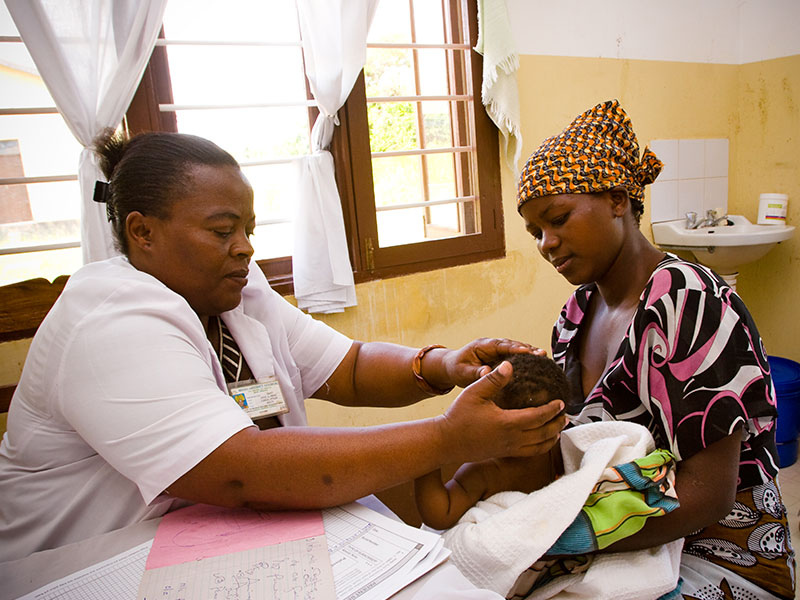
Tanzania receives more maternal and child health aid from Canada than any other country in the world, according to an analysis of a database the Department of Foreign Affairs, Trade and Development uses to keep track of donations.
The sub-Saharan African country received a total of $141 million from 2010 to 2013 to reduce maternal mortality and improve child and newborn health, 60 per cent more than the average amount of aid received by other priority countries identified by Foreign Affairs.
Tanzania received $19 million in 2010 to 2011, $58.8 million in 2011 to 2012 and $63.2 million in 2012 to 2013.
Prime Minister Stephen Harper addressed the United Nations General Assembly Thursday night calling for greater international cooperation to improve the health of women, children and newborns around the world. He also promised that Canada would be contributing to a new international fund to prevent maternal and newborn deaths.
Alexandre Asselin, a Foreign Affairs spokesperson, said in an email that Tanzania was one of 10 maternal and child health priority countries identified by the ministry, including Mozambique and Mali, which received the most money between 2010 and 2013 after Tanzania. Mozambique received $122 million and Mali received $99 million.
Asselin did not elaborate on why Tanzania received more money than any other country. He also did not clarify how Foreign Affairs decided which projects would receive money.
The aid money is part of a $2.85 billion, five-year commitment — called the Muskoka Initiative — to improve maternal, newborn and child health announced by the Canadian government at the G8 summit in 2010. A public database on the Foreign Affairs website shows how that money was spent from 2010 to 2013.
Canada’s commitment to maternal, newborn and child health initiatives was extended to $3.5 billion for 2015 to 2020 in May of this year. The money will be focused on strengthening healthcare systems, reducing the impact of major diseases through access to medicine and vaccines, and improving nutrition.
More than 20 projects in Tanzania have been funded under the federal government’s maternal, newborn and child health foreign aid program.
Plan Canada received $9.8 million from Foreign Affairs for its maternal health project focusing on ambulances services for expectant mothers in Tanzania.
Dr. Tanjina Mirza, vice-president of international programs, describes the funding as a “drop in the bucket” in comparison to the scale of maternal health needs in the country, which ranks 152 out of 183 on the United Nations’ Human Development Index.
Poverty reduction and lowering the maternal mortality rate are two areas in which considerable progress is yet to be made, according to the Foreign Affairs website.
“They need more clinics, more Caesarean theatrics. The needs are enormous,” Mirza said.
“Having that support from the Canadian government, not just in funding, but their position on the world stage, is critical.”
Aga Khan Foundation Canada received $12 million from Foreign Affairs to improve access to reproductive and child health services in rural Tanzania.
Naleem Merchant, a program officer at Aga Khan Foundation Canada, said the creation of the Muskoka Initiative was what allowed the Canadian branch of the Aga Khan Foundation to start working in maternal health. This is the organization’s first project.
She said the money has been used to improve the quality of health services, purchase medical equipment and refurbish health centres. Merchant said there has been a particular focus on community outreach programs, which are more expensive to run but they also lead to better results.
“We’re trying to make sure it’s not just health facility-based. A lot of people don’t like going to health facilities or can’t go to them,” she said.
When asked about tracking results and how federal money is spent, Mirza said she welcomed the federal government’s focus on accountability but said that Plan Canada felt a particular responsibility to the people it is trying to help.
“We don’t want to create parallel systems of healthcare,” she said. “This data and information is shared with the Tanzania Ministry of Health because that’s what true development is.”
